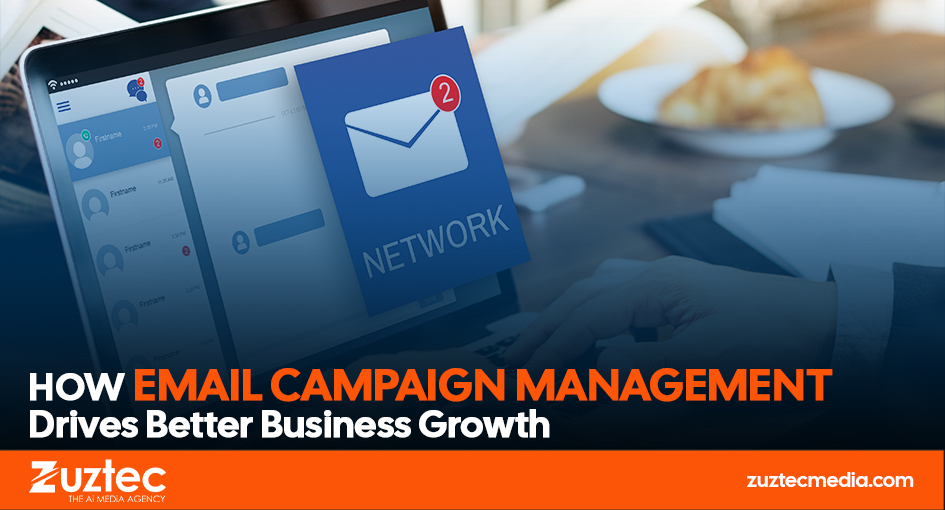
How Email Campaign Management Drives Better Business Growth
Email marketing remains one of the most powerful tools for businesses to engage customers and boost sales. However, running a successful email strategy involves more than sending random newsletters. Effective email campaign management ensures that every message is targeted, personalized, and strategically timed. With the right approach, businesses can build lasting relationships, increase customer loyalty, and generate more revenue.
Poorly managed campaigns often end up in the spam folder or are simply ignored. On the other hand, well-planned campaigns capture attention, spark engagement, and encourage action. This is why management is essential for businesses of all sizes. It includes designing appealing emails, segmenting audiences, personalizing content, and tracking results. It also involves continuous testing and optimizing based on what works and what does not. Without proper management, brands risk wasting time and resources with little to no return.
For businesses looking to maximize their marketing efforts, email campaign management offers a cost-effective, high-impact solution. Whether you are promoting a new product, nurturing leads, or staying connected with existing customers, mastering your email campaigns can significantly drive your business growth.
Why Email Campaign Management Matters For Business Success
It ensures that every email serves a specific purpose and is directed toward a clearly defined audience. Without a solid management system, emails can quickly become irrelevant, annoying, or even damaging to a brand’s reputation.
One of the biggest advantages of effective campaign management is better targeting. Instead of sending the same message to everyone, brands can tailor emails based on customer behavior, preferences, and purchasing history. Another key benefit is efficiency. Well-managed campaigns save time by automating many tasks such as welcome sequences, promotional blasts, and follow-up messages. Automation ensures that no lead or customer is forgotten and allows marketing teams to focus on strategy and creativity rather than repetitive work.
Additionally, good campaign management helps track performance. With detailed analytics, businesses can understand what subject lines get the most opens, what type of content drives clicks, and which audiences are most responsive. This data-driven approach allows continuous improvement and smarter decision-making over time.
Finally, proper email campaign management builds brand trust. When customers consistently receive valuable, relevant emails, they are more likely to view the brand positively and remain loyal.
Key Elements Of Successful E-mail Campaign Management
The first essential element is audience segmentation. Instead of treating all subscribers the same, it is important to divide them into groups based on factors like age, location, past purchases, or interests. This allows for sending highly relevant messages that speak directly to each group’s needs.
The second element is content personalization. Beyond simply using a customer’s name, personalization can include recommending products based on browsing history or sending birthday discounts. Personalized emails are more engaging and drive higher conversion rates.
The third key factor is email design. A good design makes emails easy to read and visually appealing on both desktop and mobile devices. Clear calls to action (CTAs) and concise messaging help guide readers toward the desired action, whether it is making a purchase, signing up for an event, or downloading a resource.
Tips to Improve Your E-mail Campaign Management Strategy
First, invest in a reliable email marketing platform. Tools like Mailchimp, HubSpot, and Klaviyo offer automation features, analytics, and easy-to-use design templates that simplify campaign management.
Second, focus on building a quality email list rather than a large one. Encourage signups from people genuinely interested in your brand rather than buying email lists, which often result in low engagement and deliverability problems.
Third, always provide value in your emails. Each message should offer something meaningful, whether it is helpful information, exclusive discounts, or entertaining content. This keeps subscribers interested and reduces unsubscribe rates.
Fourth, maintain clean email lists. Regularly remove inactive subscribers to improve engagement rates and maintain a healthy sender reputation. A clean list also ensures that your analytics accurately reflect your true audience.
Finally, never stop learning. Email marketing trends and technologies evolve quickly. Stay updated on best practices, new tools, and emerging strategies to keep your campaigns effective and fresh.
Furthermore, effective and successful marketing campaigns depend on effective email campaign management. It transforms random email blasts into targeted, meaningful communications that nurture customer relationships and drive business results. Without proper management, even the best email ideas can fall flat.
By focusing on segmentation, personalization, design, timing, and continuous improvement, businesses can build highly effective campaigns that deliver real value to customers. Email marketing remains one of the highest ROI channels.
Whether you are new to email marketing or looking to refine your strategy, investing in good campaign management practices will set you up for long-term success.

